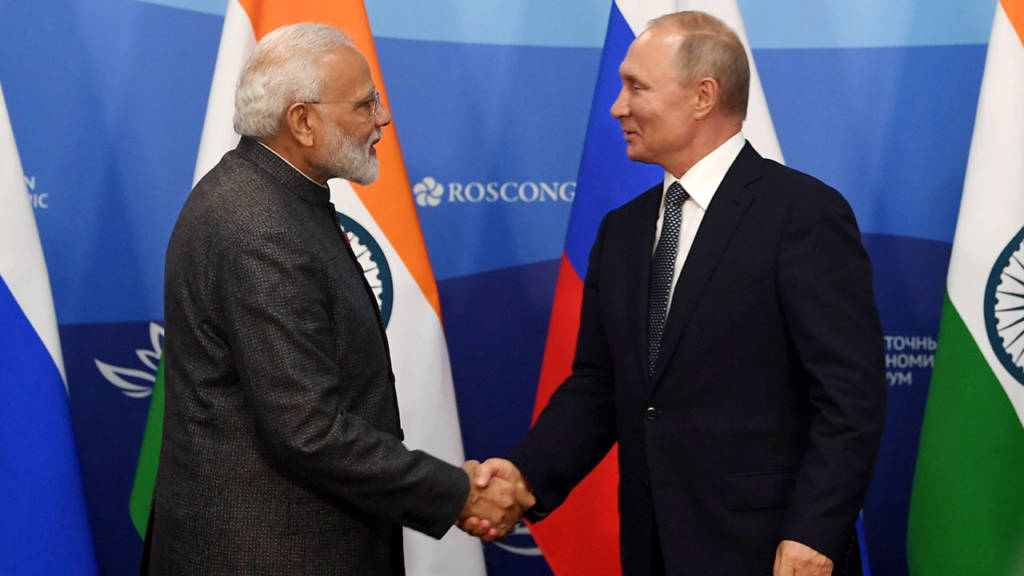Ever since Pakistan’s unwarranted outcry following abrogation of Article 370 of the Constitution by India, thereby scrapping the special status granted to the state of Jammu and Kashmir, India has been able to garner diplomatic support in the matter from countries across the world. Pakistan has been desperately waiting for some support on this issue and has been trying to garner attention by making all sorts of bizarre move. However, it is in for more dejection as Russia has unequivocally supported India on this issue.
India and Russia have affirmed their stand against the role of any “outside influences” in the internal matters of any country, a statement which ought to be seen in direct reference to Jammu & Kashmir. India has been steadfastly maintaining the stance that abrogation of Article 370, the provision that granted special status to the state of Jammu & Kashmir is an internal matter of India which doesn’t warrant interference from any foreign power. Now, PM Modi and President Putin have clearly reiterated this stance.
After talks with the Russian President, Vladimir Putin in Vladivostok, PM Modi said, “We both are against outside influence in the internal matters of any nation.” PM Modi made the statement at a press meet with President Putin after their delegation-level talks at the 20th Annual Summit. A joint statement stated that the two sides “underlined the primacy of international law and stressed their commitment to the purposes and principles stated in the UN Charter, including the inadmissibility of interference in the internal affairs of member states”.
This is not the first time that Russia has spoken in India’s support over the recent move in Kashmir. Earlier, Russia had backed India over the said move stating that the move was carried out “within the framework of Constitution”. Russia, therefore, became the first among the five permanent member nations of the UN Security Council to officially endorse India’s move of abrogation of Article 370.
It had unambiguously stated that the abrogation of the constitutional provision was an internal matter for India. Replying to questions from the media, the Russian foreign ministry had also called for resolution of all Indo-Pak differences based on the Simla Agreement and the Lahore Declaration. It must be noted that these two instruments rule out third party mediation and call for bilateral resolution of disputes between India and Pakistan.
The Russian foreign ministry had also stated, “Moscow expects that India and Pakistan will not allow aggravation of the situation in the region due to the change by Delhi in the status of the state of Jammu and Kashmir.” The statement had further added, “We proceed from the fact that the changes associated with the change in the status of the state of Jammu and Kashmir and its division into two union territories are carried out within the framework of the Constitution of the Republic of India. We hope that the parties involved will not allow a new aggravation of the situation in the region as a result of the decisions.”
Now with countries across the world unambiguously agreeing that Jammu & Kashmir is an internal matter of India and that India’s recent move abrogating Article 370 does not warrant interference of any kind from any foreign power, Pakistan must rethink its stance on the Kashmir issue. Pakistan is being regularly seen as a violator of settled principles of international law regarding inadmissibility of interference in another country’s internal affairs. This is going to make Pakistan a highly incredible entity in international relations. By constantly trying to internationalise the Kashmir issue, which is an internal matter of India, Pakistan is inviting serious trouble for itself.
